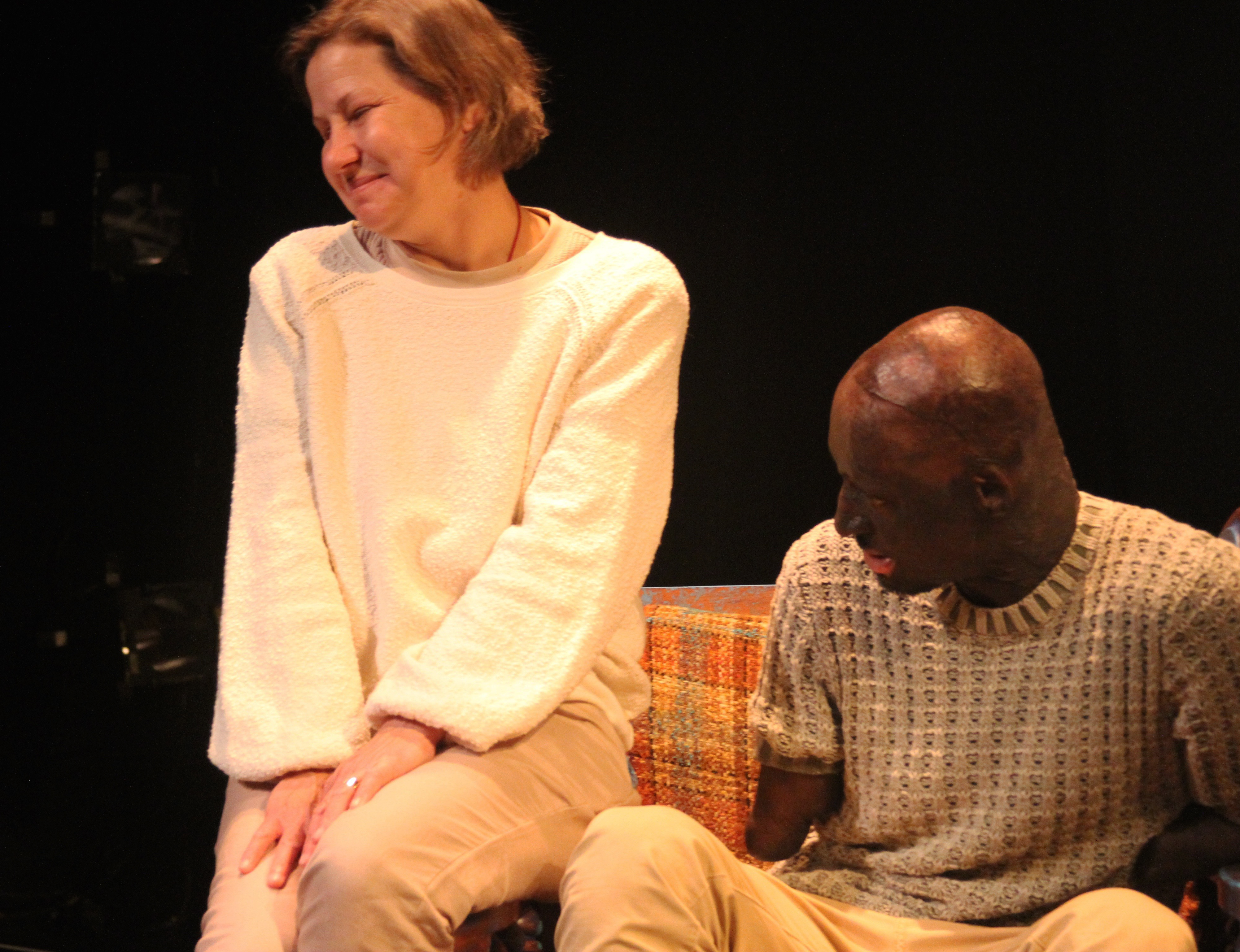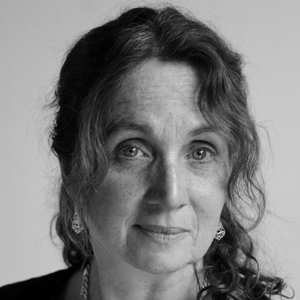Where are the playwrights?
In my final critique at the National Theatre School of Canada some 40 years ago, Joel Miller, who at the time was running the English acting program, turned to me and said “we know you have had some success with your little monologues and mask characters here, but do not ever, ever think you can be a playwright.”
“Oh no! Who, me? Never!” I answered, reciting the girl script I had learned so well. But I had a secret. It was lying in a pile with the dust bunnies under my bed on Rue Clark, and I was adding to it every day.
It was The Crackwalker.
I had no idea at all that it would change my life.
I had no idea at all that it would change my life.
One very lonely weekend in Montréal I had taken out my roommate’s typewriter and the world of The Crackwalker came roaring out of my fingers and onto the page.
It was an act of disobedience, an act of revolution. Not only was I writing, when the only playwrights we ever studied or performed were white and male and mostly dead, but I was writing a world that nobody wanted to admit existed.
I tell this story to inspire you playwrights out there to persevere. To revolt. To write what we think no one wants to see.
It’s not like all was smooth and silky from the moment that Clarke Rogers and Paul Thompson at Passe Muraille said yes. They found a company of absolutely brilliant actors, but still, it was a tortuous rehearsal process, with plenty of blood spilled. The opening, however, at that beautiful backspace was more than I ever could have hoped for. The audience rhapsodized. I was a playwright! So, still high from the night of my dreams, my husband, Gregor, and I bicycled in the pouring November rain the day after the opening to get the Globe and Mail. After all, that is what happened in the movies.
It was not only a pan, it was a full on attack.
I was bruised yes, but I was not broken. The wild enthusiasm of the people I revered in our theatre community gave me the confidence and strength to keep writing. They were hungry for the raw writing, for our stages to be full of people who nobody wanted to see. We all believed that not only should they be seen but once they were seen, they would be loved.
We all believed that not only should they be seen but once they were seen, they would be loved.
Almost every play I have written since: White Biting Dog, I Am Yours, Lion in the Streets, Sled, Enoch Arden in the Hope Shelter, Habitat, Perfect Pie, Such Creatures, Palace of the End, Watching Glory Die, Who Killed Snow White, has had both rapturous and ravaging responses—and some of those that had the worst reviews (Habitat, Perfect Pie, Palace of the End, Watching Glory Die)—went on to be produced in many languages all over the world, and win multiple international awards. So do not let them silence you! I never, ever read reviews and I don’t think you should, either. They don’t matter and they have far more power over you than they should—the good ones breed complacency and the bad ones make you hate yourself and vow never to write again. Public whippings are the worst.
The Crackwalker explored the lives of a community that was almost never seen on our stages: a marginalized, welfare-dependent community in small town Ontario. Those explorations have been a driving force in all of my writing, expressed in myriad, diverse characters and stories. The plays I wrote, however, were all fictional, and will continue to be so.
I found myself desperate to give back to the community that has given me so much; to honour those people who have been marginalized and oppressed by using my skills and my good fortune to give them a space and a form to tell their own stories in their own words. Real people telling real stories. Curated and edited by me, always in consultation with them, and sculpted into theatrical form. This was not a progression, or a move away from my own playwrighting. It is simply a parallel theatre-making path.
I have sought out those who never ever thought of themselves as playwrights, but who had plenty to say. It started because a young person in my extended family was diagnosed with a chronic disease, and so I thought there must be plenty of young people living like this, but they are invisible. So I found them, and we created a show we called Sick, and performed to sold out houses at the Next Stage Festival.
Krystal Nausbaum, who has Down syndrome, was in that show; one day I was having lunch with Krystal and her mother, Madeleine, and I proposed the idea of a show with a company of storytellers who all have Down syndrome. I knew Madeleine as a highly organized woman with many connections in the Down syndrome community, so I asked her if she would consider being the producer. She agreed, and the show Rare was born.
Again, a stage full of people who never ever thought they could be playwrights—after all, who would want to hear what they have to say? Everybody! Everybody wanted to hear and see what they had to say. Sold out houses, three extensions, and a tour. We realized that we needed to create a theatre company, and so we called ourselves RARE, and set out to do all the administrative work that becoming a company required. We found an extraordinary board, each of whom I cherish.

Borne. Russell Winkelaar, Nikoletta Erdélyi, Dan Harvey, and Nancy Xia. Photo provided by RARE Theatre Company.
We then created Borne, with a cast of performer/storytellers who used wheelchairs. I was knocked out by what I learned every day in workshop and rehearsal, and it was my great privilege to midwife their stories so that they became theatre.
Our theatre company has continued to bring voices of invisible communities to the stage with Wildfire and After the Blackout. With most of those productions, I would take their stories and craft them into a theatrical event. The storytellers were the performers.

Wlidfire. Michael Liu, Andreas Prinz, Krystal Hope Nausbaum, Dylan Harman Livaja, and Sarah Carney. Photo provided by RARE Theatre Company.
With our latest project, we have gathered nine blazing hot playwrights at the beginning of their playwriting careers—most are young, one is 88!—and they come from every community imaginable. Their voices have rarely been heard by the theatre-going public, though they have spoken; and they have rarely been seen, though they are everywhere.
Welcome to my Underworld is a theatre event that brings nine distinct, shattering, and joyful voices together to create one wild and beautiful journey. I want these playwrights to be writing 40 years from now, as I am. I want their extraordinary work to be reaching audiences who are now toddlers, and who haven’t been born.

Welcome to my Underworld. Sharmylae Fletcher, Radha S. Menon, Bilal Baig, Grace Thompson, Maddie Bautista, Samson Brown, Judith Thompson, Carolyn Hetherington, Jenna Borsato, Nikoletta Erdelyi, and Olivia Shortt. Photo provided by RARE Theatre Company.









Comments